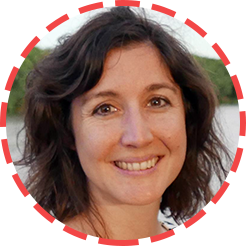Many of our parents ask us “What is the IGCSE?” Even those with children studying for the exams are sometimes not sure. So, in this article, we explain all you need to know about this qualification.
Don’t stay lost. Here, we simplify the IGCSE for you and explore how it compares to other options like MYP, highlighting its potential advantages for your child.
What is the IGCSE?
IGCSE, short for International General Certificate of Secondary Education, and adapts the English GCSE curriculum to cater to a global student body.
The focus is on examinations, offered through exam boards like Cambridge Assessment International Education and Edexcel.
The IGCSE course is for students 14 to 16 years old. With over 70 subjects, including 30 languages, IGCSE aims for inclusivity across diverse linguistic backgrounds.
It also provides flexibility with Core and Extended curriculum papers in select subjects.
What is the difference between IGCSE Core and Extended?
In summary, the main difference between IGCSE Core and Extended is the depth and breadth of the subject material covered.
Core focuses on essential topics and is often recommended for students with limited prior knowledge, while Extended covers a wider range of topics and is more suitable for students who are proficient in the subject.
The choice between Core and Extended depends on a student’s abilities, goals, and the recommendations of their school, and individual teachers. The final choice usually remains with the school.
Core:
- The Core level is designed for students who may have a limited knowledge of the subject or are looking for a more basic understanding.
- It covers a smaller portion of the subject’s curriculum and includes topics that are considered essential for students to grasp.
- The Core level is often recommended for students who may struggle to reach the higher grade boundaries or for whom English is a second language.
- The highest grades are not available for the core exam.
Extended:
- The Extended level is designed for students who have a good grasp of the subject and are looking for a more comprehensive understanding.
- It covers a broader range of topics within the subject’s curriculum and includes more advanced material.
- The Extended level is suitable for academically strong students who want to challenge themselves and potentially pursue further studies in the subject.
Differences from the GCSE
IGCSE is different from GCSE, as the programme frames the curriculum in an international context.
For example, while GCSE Geography uses UK maps, IGCSE uses maps from various countries. The program offers more subjects, especially languages, to accommodate international diversity.
Additionally, IGCSE makes practical coursework optional, recognizing challenges some students may face in certain contexts. Sometimes, this leads to the opinion that IGCSEs are harder than the English GCSE.
What are IGCSE Exam Boards – Do They Matter?
Two main boards, Cambridge Assessment International Education and Edexcel, offer IGCSE. Individual schools choose their preferred board, and this isn’t part of the choice for parents or students.
While content remains consistent, exam formats vary. It’s crucial to note that universities value high grades regardless of the chosen exam board. One is not “better” than the other.
As students revise for their exams it is essential they are clear which exam boards they are studying, as this will influence how they prepare.
How do IGCSE Prepare Students for the IB?
IGCSE serves as excellent preparation for the IB Diploma Programme and international university admission. It fosters a solid understanding of foundational concepts and provides essential exam experience.
Whether you’re considering A-Levels, the IB Diploma, AP, or your home country’s curriculum for your final school leaving exams, the International General Certificate of Secondary Education (IGCSE) offers a comprehensive program of study to prepare students for higher education worldwide.
While IGCSE lays strong content foundations, students may need to adapt to the inquiry-based learning and criteria-based assessment of the IB Diploma. Schools vary in balancing knowledge and 21st-century skills, making early communication with program coordinators advisable to address potential gaps.
Choosing IGCSE: IGCSE accommodates students of varying abilities, with questions categorized by difficulty. It offers more time for non-native English speakers to prepare. UK universities value IGCSE results when A-Levels or IB Diploma results are absent, making it a valuable qualification for admission.
IGCSE vs MYP – Which is best?
The IGCSE may not suit all students due to its exam-focused nature.
The Middle Years Programme (MYP) is an educational framework offered by the International Baccalaureate Organization (IBO) for students aged 11 to 16. It’s designed to nurture intellectual, personal, and social growth during these crucial formative years.
Students seeking more diverse coursework assessments may find the IB Middle Years Programme (MYP) a better fit as the assessment is more varied; including coursework, projects, and exams. It values not only what students know but also how well they can apply their knowledge and skills.
MYP offers flexibility, international focus, and opportunities for self-led inquiry and time management. It encourages students to make connections between different areas of knowledge, fostering a deeper understanding of the world around them.
One key aspect of MYP is its focus on Approaches to Learning (ATL) skills. These are essential skills that help students become effective learners. Students learn to research, think critically, communicate effectively, and solve problems.
MYP also emphasizes global contexts, helping students see the relevance of their learning to real-world issues and encouraging them to become responsible global citizens.
As the programmes are different it follows that one will be more suited to a particular child. Some parents and teachers think one is better than the other, but there is no overall conclusion.
Conclusion
In summary, choosing the right curriculum depends on your child’s strengths and goals.
IGCSE provides a strong foundation and international recognition. However, considering your child’s individual needs for a well-rounded education, there may be another option that suits them better.
Still, you might feel the need for extra support and guidance in making the decision for your child. If that’s the case, TutorsPlus is here for you.
We pride ourselves on experienced tutors committed to helping you excel in your IGCSE French journey. To learn more, feel free to reach out to us at 022 731 8148 and info@tutorsplus.com. With your dedication and our support, you can take your IGCSE exams and achieve the grade you hope for.











